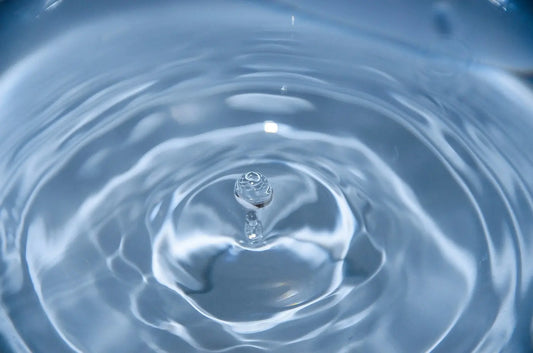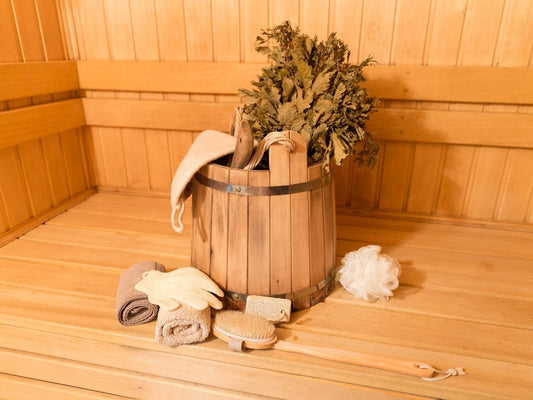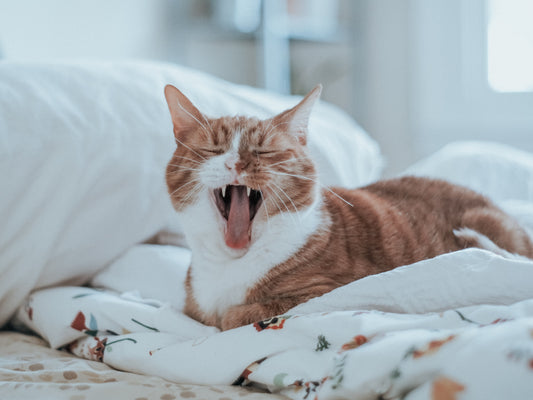We all know that water is essential to our health. However, most of us could also benefit from drinking more water throughout the day.
Are you confused about how often you should drink throughout the day? Do you have questions like “When is the best time to drink water?” or “How much water should I drink in one sitting?
If these questions have ever crossed your mind, you’ve come to the right place. Read on for all the answers you need.
How Much Water Should You Drink?
Before we talk about the best time to drink water, let’s take a step back and talk about how much water you should be drinking, period. After all, it doesn’t really matter how you’re timing your water intake if you’re not even taking in enough water, does it?
When it comes to total water intake per day, the National Academies of Science, Engineering, and Medicine recommends the following [1]:
- Women: 2.7 liters (91 ounces or about 11 cups)
- Men: 3.7 liters (125 ounces or about 15 cups)
Of course, everyone’s specific hydration needs will be a bit different. Some people might feel great drinking a little less than what’s recommended above, and others might need more. These are good goals to aim for, though, especially if you’ve never really paid attention to how much water you’re taking in per day.
Benefits of Drinking Water at the Correct Time
What happens when you drink water at specific times throughout the day? Why should you worry about the timing of your fluid intake?

If you’re drinking water at regular intervals, you’ll have an easier time staying ahead of dehydration. The following are some symptoms you might experience if you’re not drinking enough water [2]:
- Constipation
- Decreased tear production
- Decreased urination
- Dizziness
- Dry mouth
- Dry skin
- Fatigue
- Headaches
- Increased thirst
- Lightheadedness
As with most things related to health and nutrition, it’s easier to proactively manage something than it is to try and course-correct after something has gone wrong.
In other words, it’s easier to drink water throughout the day and keep yourself away from dehydration than it is to chug a bunch of water after you’re already dealing with a headache, lightheadedness, or other symptoms.
Best Times to Drink Water
As you’ve probably figured out, it’s not ideal just to drink all 91 or 125 ounces of water in one sitting. When are the best times to drink water, though? How should you divide up your daily water intake?
The following are generally considered the best times to drink water. There’s always room for adjustment and experimentation, of course (this is meant to be a guideline, not a prescription), but here are some suggestions to help you stay hydrated:
Morning
For most people, first thing in the morning is the time when they need water the most. After all, you’ve just gone 7-8 hours without drinking anything. It’d be weird if you weren’t thirsty!
If you don’t drink water first thing in the morning and just start going about your day, you’ll face a greater risk of dehydration. As a result, you might be more prone to signs of dehydration like headaches or fatigue.
Research also shows that mild dehydration can increase anxiety and harm your memory and ability to concentrate [3]. If you’re heading to work or school mildly dehydrated, you could be setting yourself up for an unsuccessful, unproductive day—and no one wants that!
Before Eating
Drinking a glass of water before meals can make it easier for you to stay hydrated as the day goes on. It can also curb cravings and help you to avoid overeating.
One study showed that drinking 16.9 ounces of water before breakfast led to a 13 percent reduction in calories consumed [4]. The results of another study showed that drinking between 12.5 and 16.9 ounces of water before lunch lowered hunger levels and helped test subjects to decrease their total calorie intake [5].
Before and After Workouts
Pre- and post-workout hydration is essential, especially if you’re going to be doing a sweaty workout or training outdoors.

Some people don’t like to drink water before a workout because they don’t like feeling as though it’s sloshing around in their stomach, or because they don’t want to take a bathroom break in the middle of their training session. If you avoid water altogether, though, you could be setting yourself up for dehydration.
Remember, you don’t have to down a gallon of water before and after your workout to stay hydrated. The American College of Sports Medicine recommends doing your best to adhere to these guidelines [6]:
- Before Exercise: Within 2 hours of training, drink 14-22 ounces of fluids
- During Exercise: Drink 6-12 ounces of fluids every 15-20 minutes
- After Exercise: Drink at least 16-24 ounces of fluids
If you’re working out for less than an hour, you can likely hydrate and feel just fine with water alone. For longer or more intense workouts, you may prefer to include an electrolyte drink mix (like Hydrant!) to make up for the minerals lost through sweat.
Afternoon
Do you ever struggle with an afternoon slump at work or school? Do you crash after lunch and have a hard time pushing through until it’s time to head home?
Instead of reaching for a cup of coffee, which could cause you to have a hard time falling asleep at night, or a doughnut, which will provide a quick hit of energy followed by another crash from low blood sugar, you’re better off drinking some water. Or grabbing a Hydrant ENERGY with electrolytes for hydration and caffeine for sustained energy.
Remember, one of the most common signs of dehydration is fatigue. Your body is about 60 percent water, and it needs fluids to carry out all the processes that keep you alive and healthy [7].
If you’re not drinking enough, your body is going to have to work overtime to do everything it needs to do. This, in turn, can cause you to feel tired and sluggish.
Bedtime
It’s not a great idea to drink a huge glass of water before bedtime. Nobody wants to be making multiple trips to the bathroom during the night.
However, if you go to bed thirsty, you might still find yourself getting up in the middle of the night because you need a drink. You might also be thirstier (and more prone to dehydration) when you get up in the morning.
If you get up at night because you’re thirsty, or if you feel extra thirsty in the morning, try taking a few sips of water before bed. This can help you to avoid dehydration without overdoing it.
Need Help Remembering to Drink Water?
Do you have a hard time remembering to drink up? Are you unsure of whether or not you’ll be able to drink at these different times each day?

If so, here are some tips to help you keep hydration at the forefront of your mind:
Set Alarms
If you’re not used to drinking water regularly, start by setting alarms or reminders on your phone or watch. Set a reminder for first thing in the morning, lunchtime, before and after your workout, etc.
Eventually, you’ll start to get used to drinking water throughout the day, and you likely won’t need to use alarms. They’ll be useful when you’re first trying to establish this habit, though.
Mark Your Water Bottle
Alarms don’t work for you? Another option is to get a clear, refillable water bottle.
Use a permanent marker to mark different lines on the bottle. Then, label each mark so you remember to drink a certain amount at regular intervals. For example, make a mark that you need to hit by breakfast, by lunch, by your afternoon workout, etc.
Add Flavor
You don’t have to just drink plain old water all day long. You can jazz up your drinks with fresh fruit and electrolyte drink mixes like Hydrant. These add-ins provide extra vitamins and minerals along with a boost of flavor.
Don’t forget, you can also hydrate with warm drinks, too. Teas and coffees also count toward your daily hydration goal, even when they’re caffeinated. Just make sure you’re staying below the safe upper limit for caffeine (about 400 milligrams) [8].
Fruits and vegetables can be hydrating as well [9]. Here are some good options to keep in your fridge:
- Apples
- Broccoli
- Cantaloupe
- Carrots
- Celery
- Cucumbers
- Honeydew
- Kale
- Lettuce
- Oranges
- Peaches
- Pineapple
- Spinach
- Strawberries
- Tomatoes
- Watermelon
- Zucchini
These foods make great snacks, side dishes, and salad toppings. You can add the fruit to your water, too, for extra flavor.
Time to Drink Up!
Now that you know more about the best times to drink water and how much water to drink, are you feeling more confident? Are you ready to experience all the benefits that come with proper hydration?
Give the strategies for drinking enough water a try today. Before you know it, you’ll be hydrating like a champ and feeling great!

















